Google For Developers
 Ayush Sanjay Chaware
Ayush Sanjay Chaware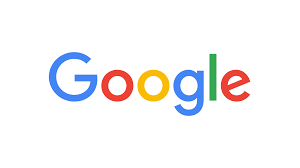
It’s very hard to imagine a day without using Google’s products. Google offers a wide range of products and services for all common People, Businesses, and developers. Google’s products help us to stay ahead of the competition. It continuously listens to the feedback of the users which helps them to constantly launch new products which meet user requirements. It’s important to note here that not all of Google’s products are successful. Some products are discontinued after a short period, while some of the products are used by a few numbers of people.
In this blog, we discuss the Various products offered by Google. This blog's main focus is to inform you about various popular products offered by Google, especially for the developer. Before this Let’s get aware of products for all and Business.
Google For All
So firstly, take your focus toward Products that are mainly built for all users whether working professionals or non-working people. These products have a huge amount of user base. It’s a fact that Google's search engine processes over 3.5 billion searches daily. Shocked!! Again, listen to YouTube uploads 72 hours of videos per minute. And Google Cloud is top 3 most popular Cloud Computing platforms in the world. These products reduce time and effort and provide results that meet user requirements. Here are some products from Google for all people.
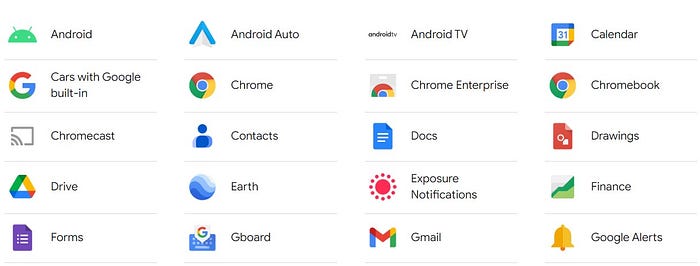
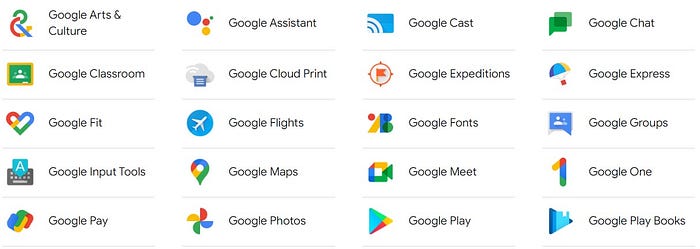
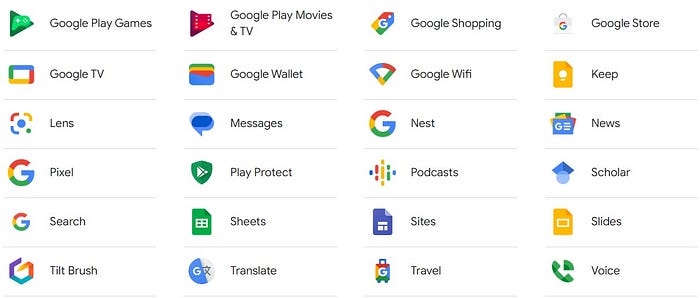

Google for Business
Google for Businesses provides a suite of productivity tools that enable efficient Collaboration among team members. It gives features like real-time editing, commenting, and version control in Google Docs, Google Sheets, and Google Slides which helps streamline your business. Another service by Google is Cloud service which helps to store big data of the company. This blog is more focused on Google for Developers.
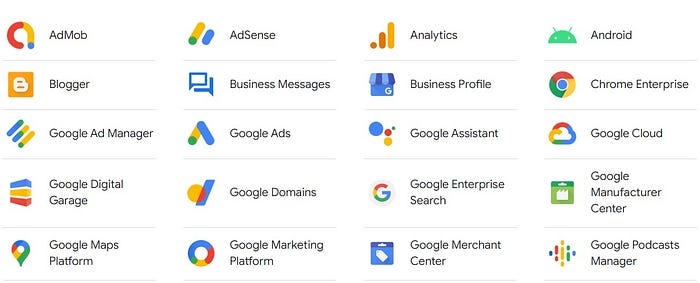

Google for Developers
Google offers users a wide range of products and services for developers. Developers play a crucial role in driving innovation. By providing products for developers, Google encourages collaboration, experimentation, and the development of new ideas and applications. This helps Google stay at the forefront of technological advancements. Google always ensures that its products and services meet the evolving needs of users. By empowering developers, Google continuously aims to upskill the developer community and enable the creation of impactful applications and services that helps to benefit users worldwide. In this blog Post, we will take a comprehensive look at the popular Google Developer products, Including
Android
Google Maps Platform
Google Cloud Platform
Google Play Console
Google Workspace
Firebase
TensorFlow
Flutter
Google Web
Here is a brief about each product
Android
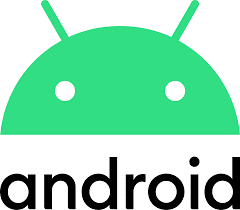
Android is Google’s mobile operating system and it is one of the most popular platforms for developing mobile apps. Android is a mobile operating system developed by Google. It is the most popular mobile operating system in the world and has over 2.5 billion active users as of 2023. Android is designed primarily for touchscreen mobile devices such as tablets and smartphones.
It is a very customizable operating system. You can change the feel and look of your device as per your interests. This can be done by installing different themes, widgets, and Launchers. We can install apps from the Google Play Store. It has over 3 million apps available which are created by developers like you are going to be.
Google Maps
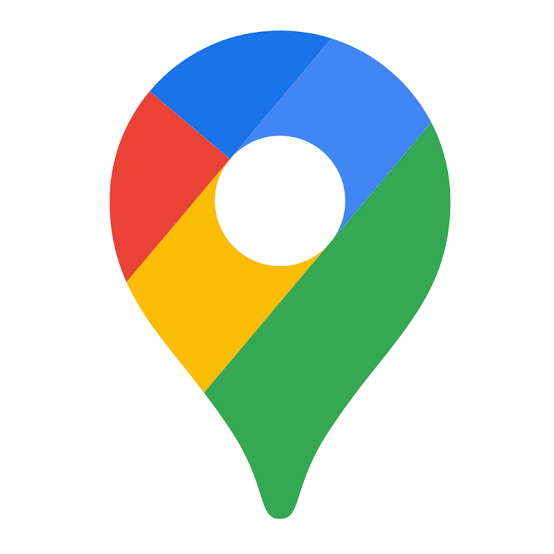
Google Maps Platform provides developers access to the Google Maps data and APIs, which can be used by users to build location-aware applications. Google Maps helps to Create real-time, real-world experiences with the latest Maps, Places, and Routes. It is also built by the Google team for developers everywhere. Google Maps Platform is a powerful tool that can be used to create a wide variety of applications. Whether you’re building a web app, a mobile app, or a desktop app, the Google Maps Platform can help you to make your app more engaging and informative.
Google Cloud Platform

Google Cloud Platform (GCP) is a suite of Cloud Computing services. It can be used to build and deploy a wide variety of applications. GCP runs on the same infrastructure that Google uses for its end-user products, such as YouTube and Google Search. GCP offers a broad range of services, including data storage, computing, data analytics, and Machine Learning.
Google Play Console
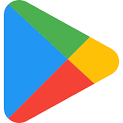
Google Play Console is a portal for developers that allows developers to publish their apps to the Google Play Store. The console provides a variety of tools and resources to help developers manage their apps, including monetization, analytics, and distribution.
Flutter
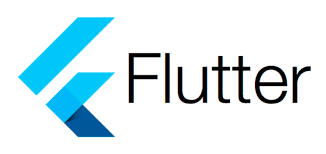
Flutter is used to transform the app development process. It is used to test, build, and deploy beautiful web, desktop, mobile, and embedded apps from a single codebase. It is used to develop applications for Android, Windows, iOS, macOS, Google Fuchsia, and Linux. Flutter apps are written in the Dart language. Developers make use of many of the language’s more advanced features To build Flutter. Flutter is a very easy framework to use and learn. The community is very active and the documentation is comprehensive.
Firebase

eGoogle Firebase is a mobile platform that provides developers with a variety of services and tools to help them build, deploy, and scale their mobile apps. Firebase offers a variety of features, including real-time data synchronization, push notifications, and crash reporting. Firebase is an app development platform that helps you build and grow apps and games users love. Firebase is backed by Google and is trusted by millions of businesses around the world
TensorFlow
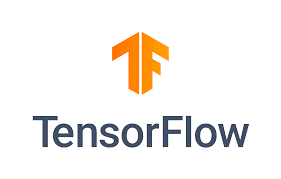
TensorFlow is focused on Machine Learning. It is an open-source Machine Learning library. Mostly used to build a variety of machine learning models. TensorFlow is an open-source software library for numerical computation using data flow graphs. So, Nodes in the graph represent mathematical operations, while the graph edges represent the multidimensional data arrays (tensors) that flow between them. If you are a developer and looking for a powerful and flexible Machine Learning library, TensorFlow is a great choice.
Google Web
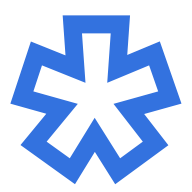
To build amazing experiences for everyone Google Web helps to take Guidance for modern web development. Google offers a variety of tools and resources to help developers build web applications, including the Google Web Toolkit, the Chrome DevTools, the Google Web Toolkit, and the google analytics API.
Google API
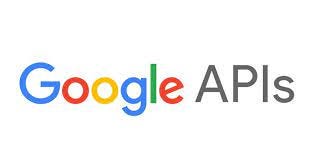
A Google API (Application Programming Interface) is a set of functions and procedures that allow developers to access Google services. Google APIs are used by a wide range of developers, including mobile developers, Web developers, and desktop developers. Google APIs are a set of application programming interfaces (APIs) that allow developers to access Google’s services and data. Google offers a wide range of APIs, including APIs for maps, Search, and cloud storage.
Google Developers Website
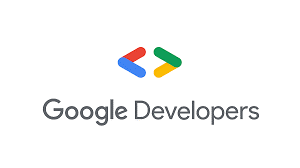
The Developer's website provides a wealth of information and resources for developers, including tutorials, code samples, and documentation. The Google Developer Events program offers a variety of events and conferences for developers, where they can learn about new technologies and network with other developers. The Google Developer Groups program provides local communities for developers to meet and collaborate which helps them to expand their knowledge.
Conclusion:
Google is committed to providing developers with the tools and resources that they need to build great products. By using Google’s developer products, you can take advantage of Google’s expertise in cloud computing, mobile development, and data analytics.
I hope this blog post has been helpful. If you have any questions, please feel free to leave a comment below.
Resources:
Let's Connect Via Socials
Subscribe to my newsletter
Read articles from Ayush Sanjay Chaware directly inside your inbox. Subscribe to the newsletter, and don't miss out.
Written by
